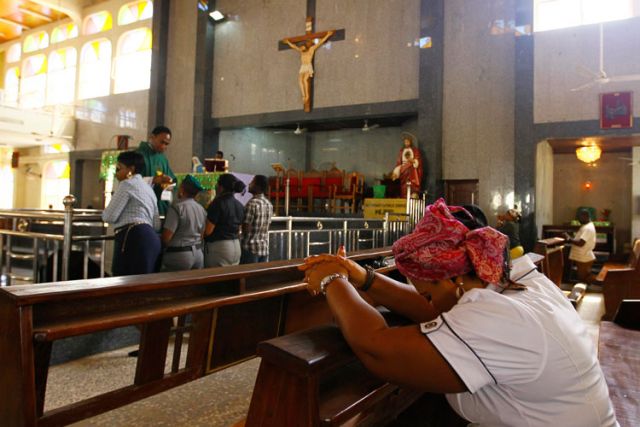Called to be different, for God’s sake
Seventh Sunday in Ordinary Time (Year A) Feb. 23 (Leviticus 19:1-2, 17-18; Psalm 103; 1 Corinthians 3:16-23; Matthew 5:38-48)
What does it mean to be holy? We use the word often and usually have in mind someone who is kind, generous and eager to do the will of God. The concept had a somewhat different connotation in the ancient world, especially in Israel. The Hebrew word kadosh described something that was set apart from the ordinary and dedicated to God. This would be true of objects, such as the utensils used for sacrifice and worship, as well as the temple itself with its various zones of ascending holiness. It also described the land of Israel, with holiness increasing as one moved closer to Jerusalem the holy city and its temple.
Living in remodeled convent, Pope Benedict is not cloistered, aides say
VATICAN CITY - In retirement, Pope Benedict XVI follows a daily schedule similar to that of any retired bishop or religious: He prays, reads, strolls, talks with people and offers them spiritual advice, the Vatican spokesman said.
Pope Francis urges Sri Lankans to reconcile, accepts invitation to visit
VATICAN CITY - When civil strife, conflict and bloodshed have pitted people of different ethnic groups against one another, reconciliation is particularly difficult, but it's still the only way to ensure a better future for all, Pope Francis told a large group of Sri Lankan pilgrims.
Did Pope Francis really say that? Probably not
Did you hear that Pope Francis plans to call a Third Vatican Council? Or that he uncovered previously unknown Bible verses? Or that he sees the story of Adam and Eve as just a fable?
We are not passive victims of fate
Sixth Sunday in Ordinary Time (Year A) Feb. 16, 2014 (Sirach 15:15-20; Psalm 119; 1 Corinthians 2:6-10; Matthew 5:17-37)
Accepting responsibility for one’s actions is a rather uncommon human trait. People love to blame everyone and everything — it’s the fault of my parents, my religion, my environment, my genes or even God. The role of victim is more comfortable than that of perpetrator.
The imperative for wholeness inside Christ
For more than a thousand years, Christians have not had the joy of being one family around Christ. Although there were already tensions within the earliest Christian communities, it was not until the year 1054 that there was a formal split so as to, in effect, establish two formal Christian communities, the Orthodox Church and the Catholic Church in the West. Then, with the Protestant Reformation in the 16th century, there was a further split within the Western Church and Christianity fragmented still further. Today there are more than a hundred Christian denominations, many of them, sadly, not on friendly terms with each other.
Pope Francis: Sacrifice key to reaping wealth of God's love, fighting misery
VATICAN CITY - Courageously follow Jesus in seeking out the poor and sinners, and in making difficult sacrifices in order to help and heal others, Pope Francis said.
Canada likely to have new saints before year's end, Jesuit says
VATICAN CITY - Three key figures in the establishment of the Catholic Church in Canada and in Brazil are likely to be declared saints before the end of the year, said a Jesuit who is helping prepare the material needed for their canonizations.
Pope Francis' first Lenten message to focus on poverty, generosity
VATICAN CITY - Pope Francis has chosen the theme, "He became poor, so that by his poverty you might become rich," for this year's Lenten message, said a Vatican statement Jan. 31.
Having coffee with God
On one of the darkest, chilliest days of the year, I met an old friend. This day had been long coming: I’d accidentally managed to stand him up a couple of times before this rendez-vous. He forgave me.
The danger of defining ourselves
Given the speed and change in our world today, the oceans of information being given us by the new technologies, the speed with which knowledge now passes through our lives, the increasing specialization and fragmentation inside higher education and the ever-increasing complexity of our lives, you occasionally hear someone say, usually just after offering an opinion on something: But what do I know anyway? Good question: What do we know anyway?










